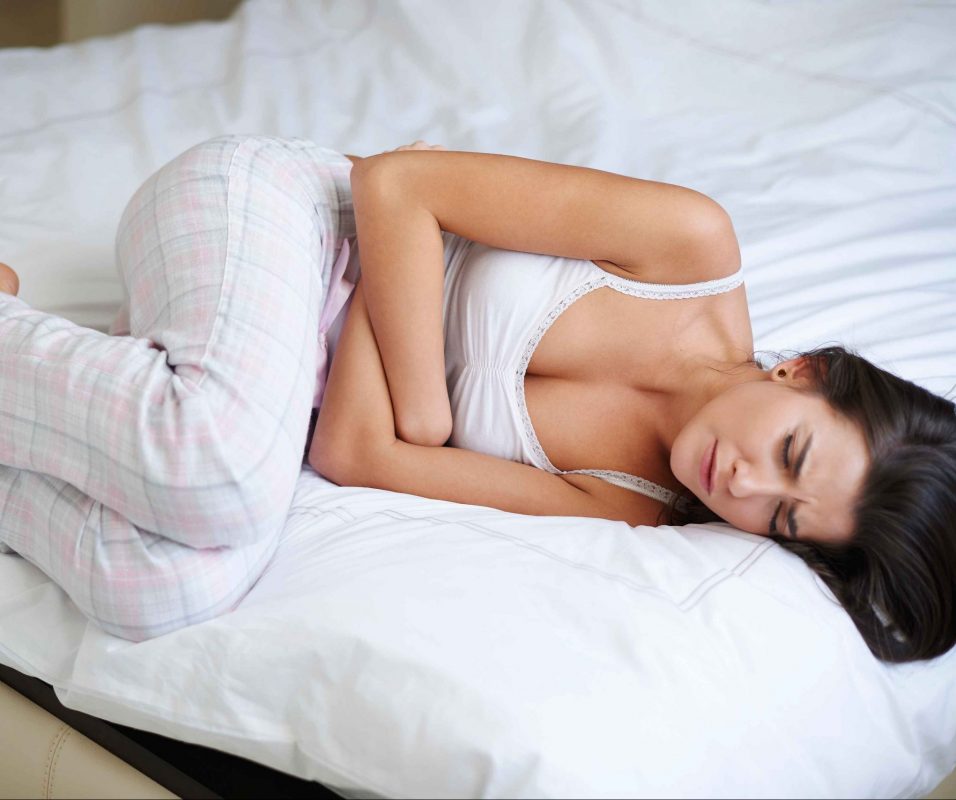Periods, or menses, are a natural part of life for women of reproductive age. While it’s a normal bodily function, many women dread that time of the month due to the accompanying discomfort and menses pain. But did you know that certain dietary changes can help alleviate menstrual pain? In this article, we’ll discuss some key nutrients that can help minimise menstrual pain and create a healthier, more balanced menstrual cycle.
Understanding Menstrual Cramps, Period Pains & More
Before we delve into the nutrients, it’s important to understand what causes pain during menstrual periods. During your period, your body produces hormone-like substances called prostaglandins, which trigger muscle contractions in the uterus. These contractions are necessary to shed the uterine lining, but they can also cause cramping and painful periods. Higher levels of prostaglandins are associated with more severe menstrual cramps.
Identifying Menses Pain: Signs, Symptoms, and Common Areas Affected
Understanding the signs and symptoms associated with menstrual pain is the first step towards effective management. While the intensity and duration of these symptoms can vary significantly from person to person, the following are the most common signs to look out for:
Cramping and Pain
This is the most common symptom women associate with their menstrual cycle. Cramps usually start a day or two before the bleeding begins and can last for two to four days. The pain is typically felt in the lower abdomen or back, but it can also radiate to the thighs.
Headaches and Dizziness
Hormonal changes during the menstrual cycle can trigger headaches or migraines in some women. Dizziness is also a common symptom, often linked to a drop in oestrogen levels just before the period starts.
Bloating and Water Retention
Many women experience a feeling of bloating or water retention in the days leading up to their period. This is due to hormonal fluctuations that cause the body to retain more water and salt.
Breast Tenderness
Breast tenderness or swelling is another symptom associated with hormonal changes during the menstrual cycle. This can begin a week or two before your period starts.
Mood Changes and Irritability
Mood changes, including feelings of sadness, irritability, or anxiety, can also occur due to hormonal fluctuations. These emotional symptoms are part of premenstrual syndrome (PMS) and usually resolve once the period begins.
Fatigue
Low energy levels and fatigue are common during menstruation. This may be due to a loss of blood leading to lower iron levels or from not sleeping well due to pain and discomfort.
Food Cravings or Increased Appetite
Many women experience specific food cravings or an increased appetite in the days leading up to their period. This is believed to be related to changes in hormones like serotonin and cortisol.
Knowing these symptoms can help you better understand your body and manage your menstrual cycle. Moreover, recognising when symptoms are severe or unusual can be crucial in detecting any potential underlying conditions like endometriosis or fibroids, which may require medical attention.
Keep in mind that while these symptoms can be uncomfortable, they can also be effectively managed through diet, lifestyle changes, and holistic treatments.
Highlander Wellness Centre is here to assist and guide you on this journey. We can help you identify any patterns or triggers in your symptoms and provide personalised advice to manage your menstrual health holistically. Whether it’s through dietary recommendations, relaxation techniques, or therapeutic massages, we’re committed to helping you navigate your menstrual cycle with less pain and more comfort.
A Balanced Diet: The First Line of Defence to Relieve Period Cramps, Dysmenorrhea
A balanced diet rich in essential nutrients can help manage the severity and duration of menstrual pain. Here are the key nutrients you should include in your diet:
Omega-3 Fatty Acids
Omega-3 fatty acids, found in fish like salmon and mackerel, as well as in flaxseeds and walnuts, can help reduce the production of prostaglandins in your body, thereby minimising cramps.
Magnesium
Magnesium acts as a natural muscle relaxant, which can help ease the cramping associated with menses. Foods high in magnesium include leafy green vegetables, whole grains, nuts, and seeds.
Vitamin B6
Vitamin B6 is a powerhouse when it comes to alleviating menstrual discomfort. It plays a crucial role in the synthesis of dopamine, a neurotransmitter that promotes feelings of well-being and relaxation. Foods rich in vitamin B6 include bananas, lean meats, and whole grains.
Vitamin E
Vitamin E has been found to reduce menstrual pain and can decrease the amount of blood loss during your period. It’s commonly found in foods like almonds, spinach, and sweet potatoes.
Calcium
Calcium plays a vital role in maintaining regular muscle contractions and can help alleviate cramping. Dairy products, broccoli, and fortified cereals are excellent sources of calcium.
Fibre
A high-fibre diet can help regulate your hormones, including those that cause menstrual pain. Fibre is found in whole grains, fruits, vegetables, and legumes.
Stay Hydrated
Drinking plenty of water can also help ease bloating and reduce water retention, which are common issues during menses.
The Role of the Highlander Wellness Centre in Easing Severe Period Pain
While a balanced diet rich in these essential nutrients can play a significant role in reducing menstrual pain, there are other natural methods you can explore. That’s where Highlander Wellness Centre comes in. Specialising in natural therapies, Highlander Wellness Centre offers a range of services designed to promote overall well-being — and one of those is helping you experience a more comfortable menstrual cycle.
Dealing with Painful Cramps? Call Us!
Menstrual pain can be a significant disruption to your daily life, but it doesn’t have to be. By embracing a balanced diet rich in the right nutrients, you can significantly alleviate the discomfort and lead a healthier, happier life. And with the support of Highlander Wellness Centre, you can discover holistic methods that can help you manage your menstrual health more effectively.
Visit our website to learn more about their services and begin your journey towards a more balanced menstrual cycle today.

